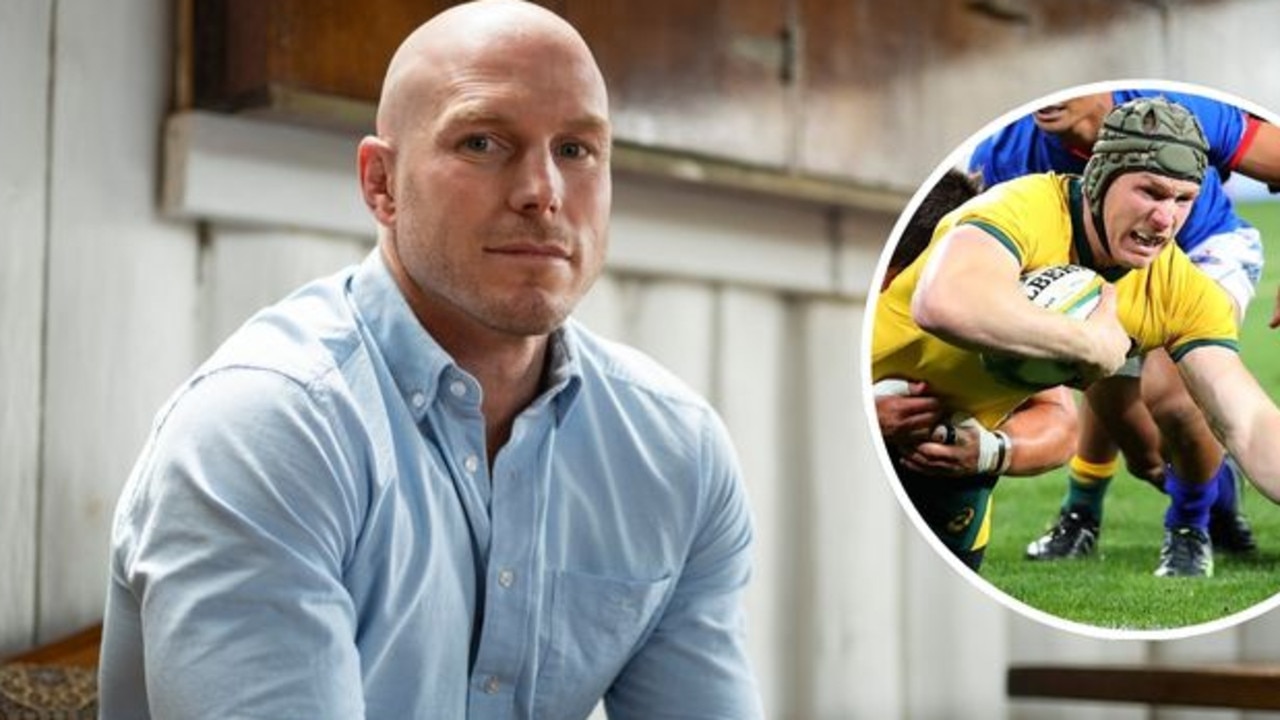Mogo Wildlife Park keeper Chad Staples rears newborn gorilla Kauis
Things were looking grim for newborn gorilla Kauis, who developed sepsis pneumonia after his mum rejected him. Then a zookeeper with a big heart stepped in. SEE THE VIDEO.

NSW
Don't miss out on the headlines from NSW. Followed categories will be added to My News.
A “skin on skin” hug saved a desperately sick baby gorilla — and now tender loving care from his human “mum” is slowly going to give him back his life.
After his real mother rejected him because of her own medical issues, little Kauis’s only hope of survival was the humans caring for him at Mogo Wildlife Park.
But even the most advanced human medical skills needed something more — a little love.
Chad Staples held the tiny primate on his chest through the dark hours of night, willing him to calm his breathing through the comforting hugs his mother wasn’t able to give.
“I could feel his heart rate drop his breathing calm down, so the antibiotics had the chance to kick in,” Staples told The Sunday Telegraph.
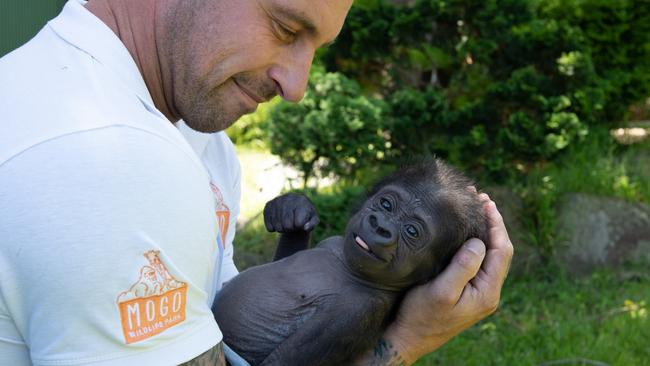
The baby developed sepsis pneumonia and was gravely ill when humans intervened at Mogo Wildlife Park on October 21.
His mum was suffering medical complications and unable to care for him.
“On the first night I had him, when all the health care people had treated him and left, we all knew there was a high chance he would crash overnight,” Staples said.
“Everyone puts it down to skin on skin contact and giving him the emotional connection and stability. What got his heart rate down and what stabilised his breathing was that contact of him being on my chest, listening to my heartbeat.
“We all believe that the comfort of feeling another person’s heartbeat is what got his breathing calm, his heart rate down, so the antibiotics could start working.
“We got him through the roughest of nights.”
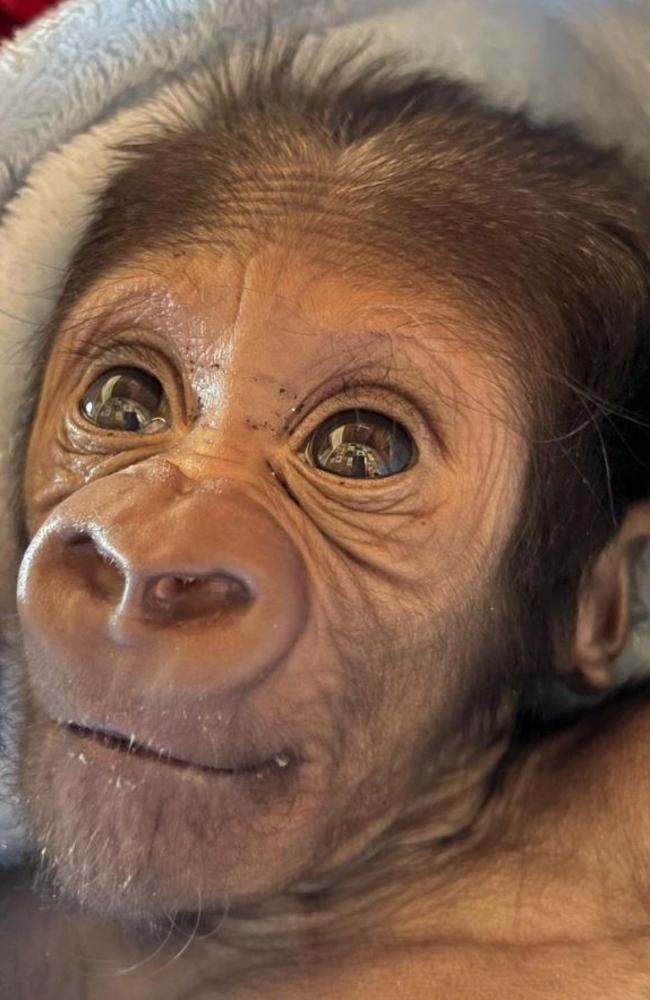
Staples, the head keeper at Mogo, has put his life on hold since Kauis’ birth, sharing his bedroom with the three-week-old, who now weighs 3kg.
Considering he needed feeding through a tube, Kauis’ 800g weight gain is music to the ears of zoo staff and the specialist neonatal medical team who keep regular checks on their hairiest of patients.
Staples feeds Kauis, who sleeps in a baby cot, every two hours, changes his nappy and, most importantly, gives the primate all the physical touch and nurturing he can.
“Our sole purpose is to give this little guy the emotional strength he needs so that he is resilient and confident so he can return to his family,” Staples said.
First-time mum Kipenzi did all the right things but was bleeding and needed surgery to remove the placenta in the critical hours after birth.
During that time the baby’s dad Kisane stepped in.
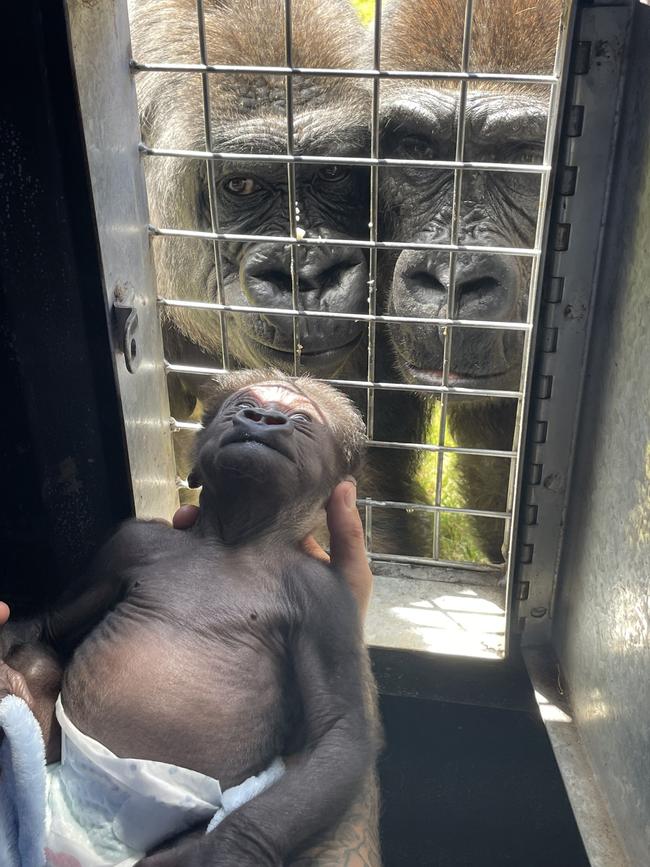
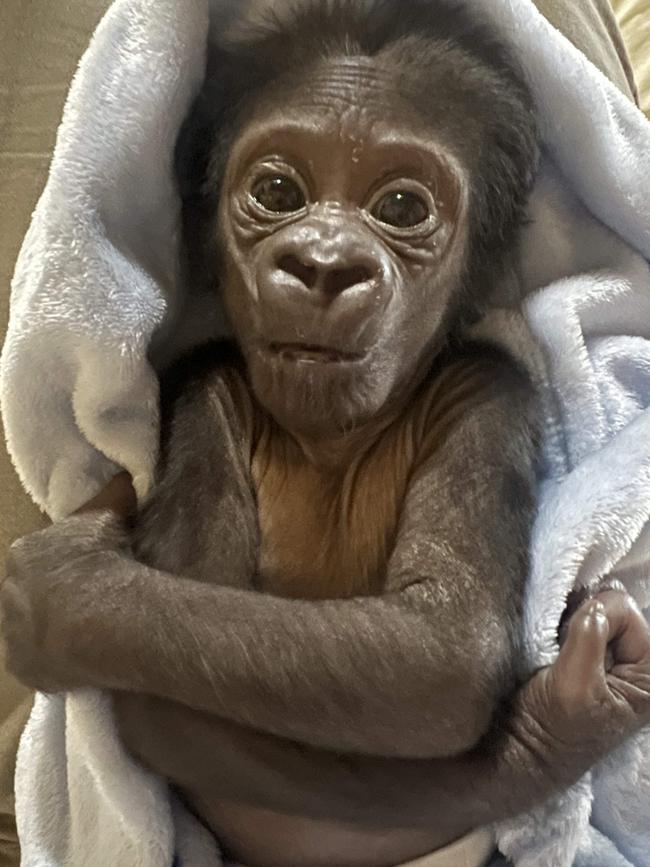
“It’s very unusual for a dad to step in like that and take the baby and very unusual for the mum to allow it,” Staples said.
“Even though he is so much bigger than her, you would expect her to cry and scream or run away, which would signal to him he shouldn’t have taken the baby.
“It was very odd so we believe Dad could sense Mum wasn’t OK and tried to intervene on her behalf.
“You would expect her to demand the baby back but it never happened. Then she had 14 hours of watching dad with the baby and the wrong hormones were flooding her brain. Instead of her nurturing hormones, her milk coming in – all those things that go along with pregnancy, she was in a heightened stress, her adrenaline pumping.”
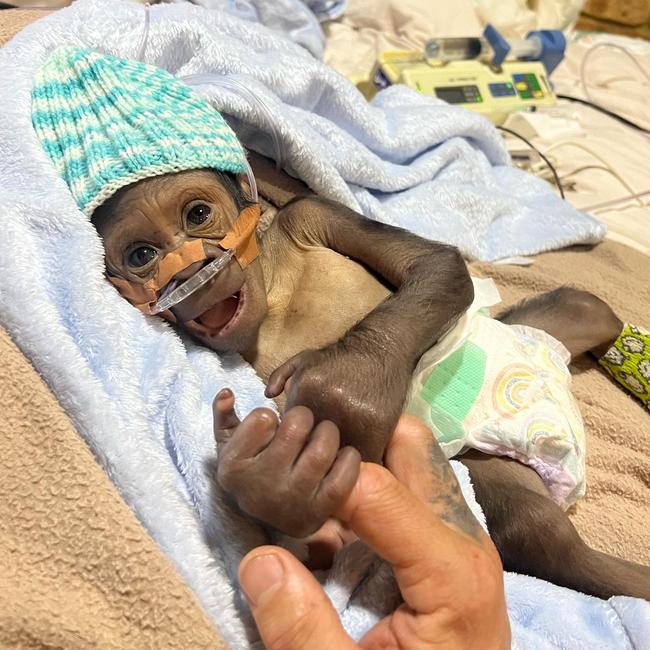
When Kisane finally left the baby on its own, zookeepers rushed to retrieve it.
“We fed the baby and when we tried to put him back (his mum) wanted nothing to do with him. She stepped over him to get food, there was zero interest,” Staples said.
“We intervened to feed him again and that’s when his whole demeanour changed. He was very unwell.”
While Kauis is now thriving, the gradual timing of the reintegration is critical to ensure he is welcomed home.
“This baby was already rejected by mum twice so we are now doing everything for this baby to be a healthy and emotionally strong creature into the future,” Staples said.
“If this baby was born in the wild it would need its mum 100 per cent of the time both emotionally and physically, so we need to provide that support. Then we will get to the point that he’s not a baby so much any more so we look at the next stage.”
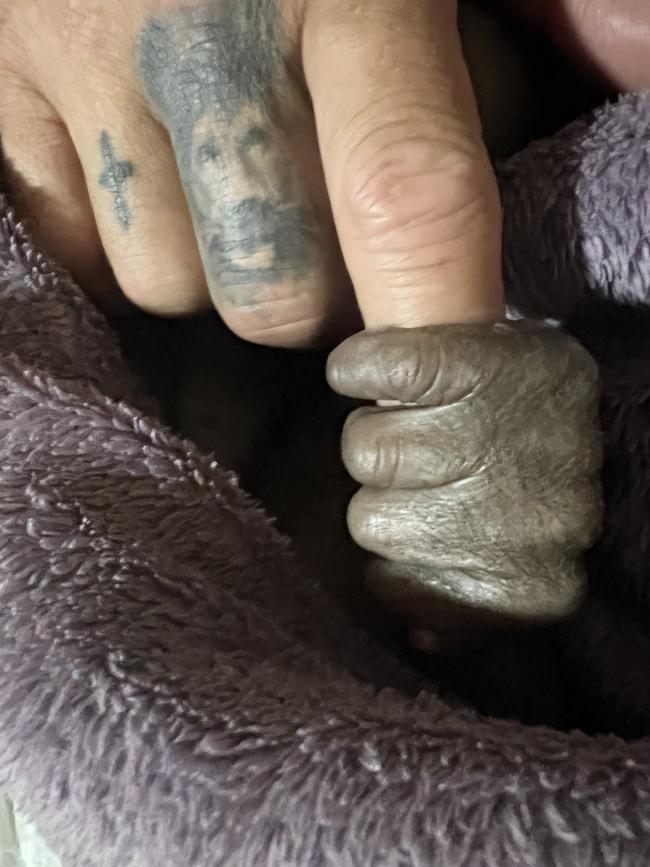
Staples said he had been consulting experts around the world, who agreed the best way to encourage reintegration was to have a principal carer — mirroring the relationship in the wild of a mother and child.
Asked whether a gorilla being attached to one human could be detrimental, Staple said: “We have to consider the animal to be so similar to a human it needs nurturing the same way.”
“You think of him like a three-month-old baby right now. They need their mum. Then as they grow, they need them less and less and in different ways.
“That’s the state we are at right now. Our team of keepers who will work with Kauis will expand as he gets older, almost like how a gorilla’s extended family becomes more involved.”
Unlike humans, Kauis doesn’t scream between feeds.
“You’ll have a couple of periods during the day where he has nice awake times for, I guess, anything up to half an hour at a time,” he said.
“The only time gets a bit upset is when you put him down to change a nappy and he complains a little about the cuddle being broken.”
Kauis will get his teeth much sooner than humans, try vegetables earlier and will be mobile long before the crawling average of 10 months. And every day he sits with his family – albeit on the other side of the fence for now.
“Every morning and night we take him down for the first feed and the last feed before it’s dark,” Staple said.
“Every day I leave Kauis’ bedding blanket with the family for them to smell and hold for the day. There’s a little bit of interaction some days.
“Mum at the moment is the least interested so that’s why we just wait.
“It’s a long, long road.”
Got a news tip? Email weekendtele@news.com.au
Originally published as Mogo Wildlife Park keeper Chad Staples rears newborn gorilla Kauis

